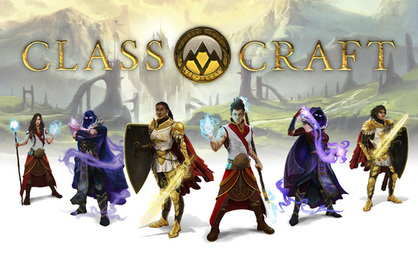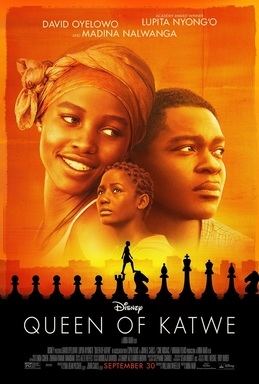 Do not mess with the Man in Black. Do not mess with the Man in Black. Most of the movies or shows I've seen that directly interact with video games show them in shallow and/or goofy ways. The husband and his friends addicted to some sports game on the XBox, the gawky teenager, the Mazes and Monsters parody of a person who gets too deep in a game and can't get out. But Westworld, which is now in its first season on HBO, is something different. The premise of Westworld is that humans pay a lot of money to be fully immersed in a realistic wild west setting, complete with brothels and shootouts. To fully enjoy their experiences, they interact with robots that look like humans and express human emotions. Human visitors can treat the robots however they please, because they will just be repaired and put back into circulation, their memories wiped... sort of. And that is where the problems with Westworld truly begin. You might first compare a show like this to 2001: A Space Odyssey or another film about experiments with advanced AI coming back to haunt us. But what I can't shake when I see the show is my own experience as a video gamer. I half expect one of the androids to say, "I used to be an adventurer like you, but then I took a bullet in the knee." In the very first scene of the show, a man is talking about how he played the game "white hat" while he was with his family, but returned alone to be fully evil at a later date. Inside Westworld, the android characters say their lines again and again, and interacting with them sends visitors down various "questlines" that allow vacationers to become heroes, villains, or treasure hunters. It was like the TV version of Red Dead Redemption, or a western version of the Elder Scrolls Online. The character who interests me most right now is the Man in Black (Ed Harris), who has been playing the game in Westworld for a very long time and who wants to push it to its limits. At first, he just seems to be a violent participant, but it soon becomes clear that he is in search of something deeper—and he is willing to scalp, murder, and abuse his way there. He finds the suffering of his android "hosts" to be fascinating, even enjoyable. He's probably the character I would have been in Skyrim if I were hoping to meditate on the nature of evil. I really struggle with playing evil characters in video games. Getting all of the Daedric artifacts in Skyrim is something that I did once because I wanted that platinum trophy, but I will never do it again with another character. I enjoy the Thieves' Guild, and even the Dark Brotherhood, but the human sacrifices and cannibalism were a bit too much for me to take. Other players, however, seem to love having the option to experiment with depravity, and I don't necessarily think that is wrong. But how will the upcoming VR systems for PlayStation and XBox change the ethics of interacting with AI? And where would we draw the line when interacting with robots that were not human, but truly seemed to have human feelings? It is one thing to shoot someone on your flatscreen TV, but it is quite another to literally get blood on your hands. Westworld is a superb show so far, and I can't wait for the next episode to air. But I also like the show because it makes me think about who I am as a gamer.
0 Comments
 I'm participating in a conference for language teachers this weekend, which means I get to freshen up on the latest buzzwords and take a look at people's cool new ideas and implementations. At every conference I have been to, there are a couple of panels about "gamification" and/or about spicing up classroom activities by turning them into play. Playing games in the classroom is fun and relatively easy to do. I personally enjoy creating Latin games for my students, and there are all kinds of old language class standards to work with, like "Flyswatter" and "Verb Conjugation Battleship." There is definitely a place for games in the classroom. But you can't learn everything just by playing games. Gamification, on the other hand, interests me but also worries me a little. Online services such as Classcraft allow you to turn your entire class into a game, complete with online avatars for your students. They work together in groups to complete learning-based "quests" that allow them to "level up" in the game or to receive specific classroom rewards. (A teacher I was listening to yesterday, for example, allows warriors to "hunt," or eat food in class, while mages can "teleport," or switch seats with someone else in the classroom.) Review quizzes can be transformed into "boss battles" for which students must prepare. On the one hand, this sounds really cool: If you can get student buy-in, they will practically teach themselves the material because you can set up independent "questlines" for them to pursue. On the other, I worry that a program like this would end up being more work for the teacher than it's worth—at a minimum, there is a lot of setup. And how would I fully integrate something like this into my Latin class? Is your class mostly based on the game, or does the game just add "flavor" to the class? I want my students to spend most of their time interacting with things in Latin or thinking about things that have to do with Roman culture. And what do you do with the handful of students who inevitably start to fall through the cracks? The ones who won't buy into this system? Besides, games can eventually get old. I still play Pokémon Go from time to time, but I no longer have much drive to level up or to aggressively hunt Pokémon. Does gamification of a class have true staying power? The other aspect of gamification that concerns me is that learning should not have to be a game to feel worthwhile for students. In real life, we have to devote ourselves to activities that are not inherently fun, because doing so will lead to rewards later. (Or maybe it's just the right thing to do, even without a reward.) If my students are motivated, does it matter how I fostered their motivation? Is there a "right" or a "wrong" kind of motivation? I truly cannot answer these questions. And I'm not currently at liberty to try something like Classcraft myself—my school does not have a one-to-one device program, and to be honest, our laptop carts are hot garbage. Those computers suck so bad that no one worries about them getting stolen. My students are borderline insulted that they have to use them. This leads me to wonder whether gamification is being used primarily with students who already have plenty of resources—in other words, with the students who need it least. (What would pencil-and-paper gamification look like? Should I go get some old D&D character sheets?) Games are a huge part of my life, and I love to share them with students. But I don't want to go wild over a new idea just because it sounds cool. I would be very interested in seeing a highly detailed report on a "gamified" language class, with specifics about pacing, assessments, and levels of student independence during class time.  Like pretty much everyone else who likes both chess and Disney movies, I've been captivated by Phiona Mutesi, the Ugandan chess player who is now known as the "Queen of Katwe." Tim Crothers' article for ESPN became a book in 2012, and is now a feel-good film with Disney backing. After I read Crothers' book, I did what any responsible internet user would do: I Googled the crap out of Phiona Mutesi, because she's fascinating and I wanted to know more. I also read several reviews of both the movie and the book, and I was happy to see that other people find Phiona's story as captivating as I do. I also noticed, however, that every party has a pooper. Among some internet commenters, it's de rigueur to bag on Phiona and to put her down by saying that she's "not really that good at chess." Fortunately, there aren't too many haters out there, but there is at least one on every comment thread I've seen so far. You don't have to go far to find a snarky remark about Phiona's chess rating or the fact that she is a "candidate master" and not a grandmaster. (Exhibit A, Exhibit B, Exhibit C.) The first fashionable piece of Phiona-bashing I found dates from 2011, after Crothers published his very first article about Phiona Mutesi. The New York Times chess blog featured a post entitled, "ESPN Discovers a Chess Prodigy. Or Not." The author, Dylan Loeb McClain, questions Crothers' understanding of chess and compares Phiona with a young woman whom he considers to be a "true" prodigy. He acknowledges that Phiona's situation is different because of her more challenging background and her lack of access to training, but he also wants to make sure we know that Phiona isn't really that good. More recently, in the wake of good press about the Queen of Katwe film, the conservative Daily Caller ran an opinion piece entitled, "The Media's Female African Chess 'Prodigy' Is Actually Nothing Of The Sort." In this piece, the author, Jonah Bennett, notes that he has interviewed several different grandmasters (all of whom wished to remain anonymous). One of these interviewees is quoted as saying, “Let me not mince words: by a purely objective standard, Phiona is not a strong chess player; she is equivalent to a weak-to-average club player (class C or B in the U.S.).” Another notes that a twelve-year-old student of his has a FIDE ranking of 1900—higher than Phiona's career peak in the 1600s. Here is what I have to say to those self-appointed gatekeepers: SO WHAT? There is a reason that people think chess players are a bunch of snobs, and it's because people like you feel compelled to say that while Phiona's story is "heartwarming," she herself isn't anyone to be impressed with. If you actually bother to read the book or watch the movie, you will see that no one ever claims Phiona is the best chess player in the world. Instead, she is presented as a determined player who learns something from every game, win or lose. That is a fantastic message. A twelve-year-old with a high FIDE rating is cool and all... but I want to know about the hardscrabble kid from the slums who refused to give up until she could buy her mother a house, and who wants to go to college to become a doctor. I get that chess is a brutally competitive game and that hard-earned titles are a source of pride. Rightly so. But some things are more important than titles—things like a love of the game, like a focus on chess that goes beyond tired old narratives about the Cold War being played out on 64 squares. If we want our hobbies to thrive, we need to stop gatekeeping and start welcoming. And that includes not being petty enough to criticize the subject of the most inspirational chess story we've seen in a long time. And to you, Phiona Mutesi, I say this: Hail to the Queen!  I just got back from seeing Queen of Katwe, and as I expected, I really enjoyed the movie. The acting was fantastic. Madina Nalwanga's portrayal of Phiona Mutesi looked natural and effortless, while adult actors Lupita Nyong'o and David Oyelowo nailed the roles of Phiona's mother, Harriet, and her chess coach, Robert Katende. What impressed me the most about the movie is that it successfully treads the line between realistic and inspirational. It's a Disney movie, so you know it's going to have a happy ending, but I also didn't feel lied to about Phiona's economic situation. At various points in the film, the family is kicked out of their home, they have to sneak out of a hospital because they can't afford the bill, and Phiona's sister is (tastefully) depicted as relying on sugar daddies for money. Madina Nalwanga does an amazing job of portraying a young girl who has had a glimpse of a better life and can't reconcile it with her current reality, while Lupita Nyong'o delivers a stunning portrayal of a loving mother who is under severe stress. Obviously, this movie is about a lot more than chess, and I think that's what makes it an excellent chess movie. This isn't a film about geniuses who are dancing on the brink of insanity. In Queen of Katwe, chess is what keeps the main character sane. Queen of Katwe is also an important film because it's a movie with no significant white characters. We need more movies that tell stories about non-white people and non-westerners, which makes Queen of Katwe more culturally valuable than the usual Disney fare. I hope that its presence on the scene breathes new life not only into the film industry, but into the game of chess. |
AuthorMy name is Liz Davidson, and I play solo board games. A lot of solo board games... Archives
August 2021
Categories
All
|
 RSS Feed
RSS Feed